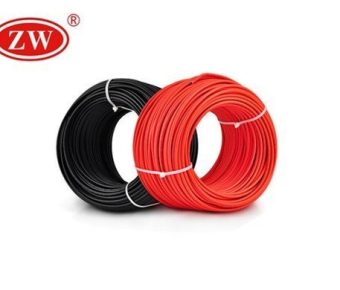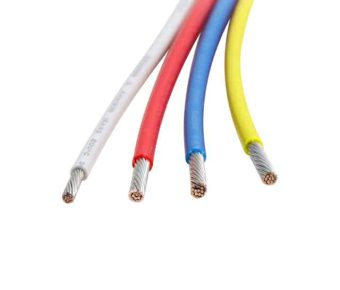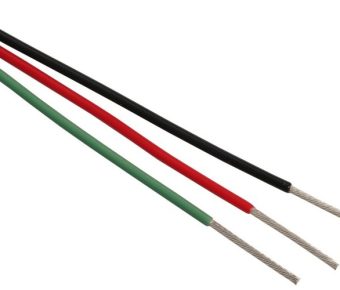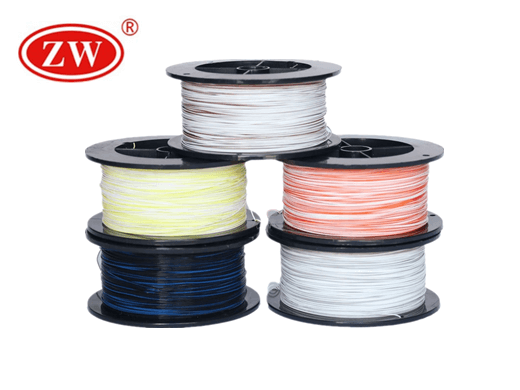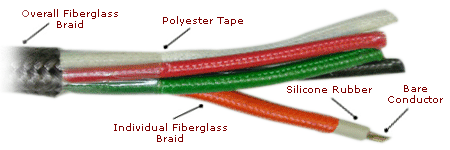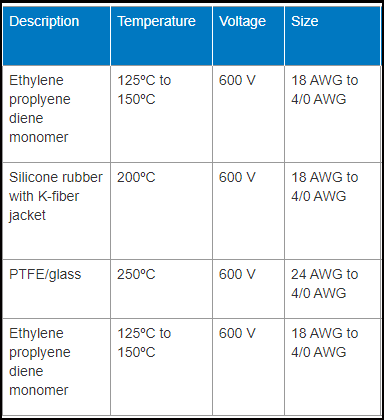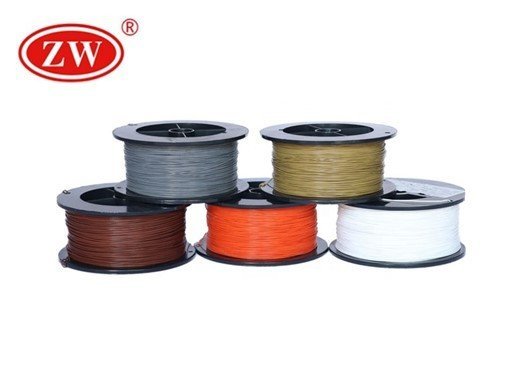- Leading Cable and Wire Manufacturer-ZW
- high temperature wire
High Temperature wire
- According to UL, Rohs Standard
- Teflon Insulation and Silicone Insulation
- Approved by UL, BV, SGS
- Working Temperature:-80℃~+200℃
We can produce many types of high temp wire like FEP wire, FPA wire, PTFE Wire, Silicone wire. Specific Size we can produce UL 1330, UL1332, UL 10064 , ul1007 24awg etc.
Buying Better High Temperature Wire and Cables
Like many other products, high temperature cable has a huge variety, manufacturing specifications and diversity of application. Because of the vast differences in cable quality and application, it’s incorrect to say that one specific type of high temperature wire is better than another; or that Silicone high temperature wire 12 AWG is more suitable than Teflon 12 gauge high temperature wire. It is the application and the operating environment that determines which one is the better option.
In this High Temperature Wire Buyers Guide, we’ll address some of the common questions that most people have about high temperature heat resistant wire. We’ll also talk about the various types of wire insulations available, and some of their operating characteristics. We’ll also touch upon some of differences in high temperature wire manufacture processes, which will help you make more informed choices.
The objective of this High Temperature Wire Buyers Guide is to give you enough information so that you make the right high temp wire selection and procurement decisions.
What is high temperature wire?
High temperature wire often refers to electrical cables and wires that have a temperature rating of 125°C (257°F) or higher. However, in other context, high temperature electrical wire may also refer to wires and cables that have temperature ratings as low as 90°C (194°F). These cables and wires are available in various forms, including single-conductor or multiconductor variants.
Some of the common applications of high temperature heat resistant wire include:
- Utility power stations
- Electric arc furnaces
- Casting furnaces
- Die cast plants
- Plastic molding plants
- Weld robotic cells
- Refineries
- Blast furnaces
- Fire protection equipment
- Food industry professional ovens
On the face of it, a high temperature cable may seem to only be applicable for applications that generate excessive heat. However, that’s not the case. Many Teflon wire and silicone cable manufacturers offer products that can also operate in conditions that offer extremely cold environments.
Depending on the process of high temperature wire manufacture, these intense-heat shielding cables and wires may have various components. However, typically, they comprise of a conductor, which may be annealed, copper-plated, tinned copper, or nickel-coated copper, and high temperature insulation made from various polymers. Some high temperature wire may also have an additional external jacket made from either K-fiber material or fiberglass braid.
What is heat resistant cable?
Heat resistant cable is another name for high temperature wire, and share the same characteristics and operational application. When sourcing high-heat capable cables and wires, it’s important to remember that these products aren’t just ideal for high-temp applications. Many cables with high temperature wire cover or insulation function equally well in extremely low temperatures too.
Many high temp wire varieties have either Silicone or Teflon insulation, which makes them heat and cold resistant. Because of these characteristics, these products are ideal in environments that generate excessive heat – such as furnaces and ovens, as well as sub-freezing usage, such as in polar or deep-sea projects.
What types of insulation do high temperature cables use?
Two of the most common materials used in manufacturing high temperature cable insulation are PTFE and ETFE polymers. High-quality high-temp cables are available using either of these insulations. Neither of the two types of polymers are “good” or “bad” – they both fit unique applications.
ETFE is an ethylene tetrafluoroethylene copolymer insulated heat resistant cable, and made from a carbon, fluorine, and hydrogen-based material. A better-known brand name of such cables is Tefzel®. The resins used in these coatings are the very resilient among the fluoropolymer range of polymers, and high temp wire may be manufactured by applying ETFE at film builds up to 1,000 micrometers – which is very tough.
PTFE, on the other hand, is a fluorocarbon and is made with carbon and fluorine atoms. A well-known brand for this type of polymer is Teflon®, a trade name of DuPont. While ETFE has a tensile strength that may be as high as 34% greater than that of PTFE, a high temperature cable made from the latter is a more flexible polymer with a comparatively higher (66%) elongation to break.
You’ll also find plastic-based insulations, such as Polyvinyl Chloride (PVC) and Chlorinated Polyethylene (CPE); and rubber-based insulations, such as Neoprene (Polychloroprene) and Ethylene Propylene Rubber (EPR). As well, other high temperature cable insulations may use hybrids of these, and other, materials.
What type of wire is used in very high temperature locations?
Wire with high temperature insulation is required to support wiring and cabling applications in high temperature locations. Because of the intense heat properties required, either ETFE or PTFE cables are good for such locations. The reason for this is because of the thermal properties inherent in either types of insulated cables. While both types of insulation support high temperature wire, the melting temperature of ETFE is 267oC, while that of PTFE is 327oC. This means that the latter is a better high temperature electrical wire, compared to the former, in locations generating extreme heat.
The cable’s Limiting Oxygen Index (LOI) value also determines the choice of high temperature cable for a specific application. LOI is the minimum percentage concentration of oxygen at which the polymer used in the cable’s insulation starts to burn. For PTFE, that value is greater than 95%, while with ETFE cables, the LOI is between 30% to 36%. When choosing high temperature heat resistant wire for higher oxygen locations, therefore, a PTFE cable is a better choice.
What temp does wire insulation melt?
High temperature cable insulation melts depending on the materials used in manufacturing the insulation. The melting temperature of PTFE insulated cables is 327oC and ETFE 267oC, but both of these materials begin to soften at lower temperatures.
Plastic insulation, such as PVC has a maximum high temperature range of 105 degrees Celsius (221 F), while high temperature electrical wire with other plastic insulations, such as Polyethylene (PE) can withstand temperatures of up to 80 degrees Celsius (176 F).
Rubber high temperature insulation types, such as Styrene Butadiene Rubber (SBR), may withstand up to 90 degrees Celsius (194 F); while Fiberglass and Silicone insulated cables may operate in temperatures in excess of 482 degrees Celsius (899.6 F) and 180 degrees Celsius (356 F) respectively. Ethylene Propylene Rubber (EPR) high temperature wire cover may melt in temperatures approaching 160 degrees Celsius (320 F).
When it comes to high temperature cable insulations, melting point may not be the only cause for concern. Engineers, electricians and other infrastructure project managers, where heat resistant cable is used, may also be concerned about “outgassing” – a situation where heat causes component parts of an insulation to escape into the atmosphere. Using high temperature heat resistant wire, that leads to outgassing, may cause gasses like corrosive hydrofluoric acid to fume enclosed areas and wreak havoc on people and equipment.
Does Insulation have Teflon and silicone?
Yes, there is high temperature cable available with both Teflon and silicone insulation. Which cable one chooses to use depends on the environmental conditions and the application. For example, a 16 high temperature wire with Teflon insulation might be ideal for applications that call for heat resistance, corrosion resistance, wear-and-tear resistance and friction resistance.
Because of its flexibility characteristics, high temperature wire with Silicone insulation is useful in hard-to-access applications. For example, a silicone insulated 14 gauge high temperature wire may be equally useful in rugged applications. That’s because Silicone high temp wire also offers additional resistance against weathering, ozone and ageing, and provides protection against radioactive rays as well as UV-radiation.
Ultimately, however, whether you choose Teflon cable insulation, or whether you choose to use silicone wire instead, your application and its operating environment will ultimately drive your choice of high temperature wire cover.FEP Wire and PFA wire belong to Teflon wire.
Where to buy high temperature wire?
Now that you know all there is to know about high temperature cable, you may confidently purchase the right heat resistant cable for your application. Remember, your choice of the right cable may impact the quality and performance of your project, So, before you source your cable, make sure you assess the capabilities and experience of your cable manufacturer. Here, at ZW Cable, we can supply you a wide range of such cables, from 12 gauge high temperature wire to 16 high temperature wire – and anything in-between.
Our vast experience in high temperature wire manufacture and supply, means you’re always assured of the best quality high temperature electrical wire in the industry. Our well-respected production process and extremely diligent quality assurance standards ensure our products are of the highest quality available on the market. Of course, when sourcing high-quality high temperature heat resistant wire for your project, you must also consider pricing as a deciding factor. And we have good news on that front too!
Here, at ZW Cable, we not only excel at high temperature wire manufacture to the highest industry standards but our products – from high-grade silicone cable to top-of-the-line Teflon wire, are extremely competitively priced. Whether it’s high temperature wire 12 AWG that you’re looking for, or you wish to source high temperature 18 AWG cable, you’ll find us very reasonably priced – guaranteed!

